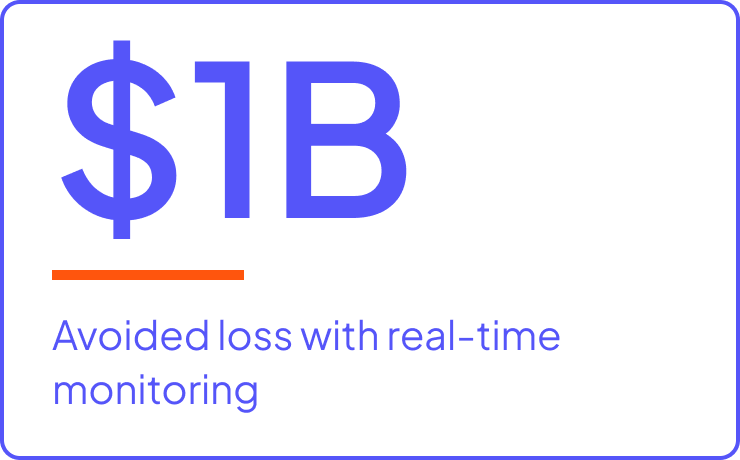

Key Highlights
Solution highlights
Impact
Processing 10 million records per day
Established 3 critical dashboards within 24 hours to mitigate risks of COVID pandemic
Shortened time to process data from 7 days to a few hours
Prevented potential losses of 7.3 million transactions per week at each of the bank’s branches
Reduced loan qualifications from 5 days to one day
As the largest financial institution in Indonesia, Bank Mandiri is committed to being attentive, proactive, and innovative in delivering financial solutions to every customer. Its vision is to be a preferred financial partner delivering simple, fast, digital banking solutions that seamlessly integrate financial products.
The bank has gone beyond lending to become the premier wholesale and digital retail bank of Indonesia with a passion for sustainable growth. With many subsidiaries across Asia, Bank Mandiri has a broad range of products in their portfolio providing savings, current and fixed deposit accounts, home loans, working capital, and investment loans.
Challenge
With the onset of Covid-19 across Indonesia, the government immediately restricted citizen mobility across the country. This caused lock downs, curfews, and restrictions around border crossings, disrupting long-established habits and patterns of movement for all citizens.
The virus outbreak weakened global demand and increased disruption to domestic economic activity. For financial institutions, like Bank Mandiri, this means the number of customers who have trouble repaying their loans to the bank is increasing, placing customers’ livelihoods—and the bank’s performance—at risk.
For the bank's internal operations, the new landscape meant the workforce had to be agile and adopt flexible working practices such as remote working. IT teams had to ensure systems could support these practices, while safeguarding the security and governance of data. The legacy environment was costly and rigid, struggling to ingest unstructured data from sources resulting in limited actionable decisions based on current, comprehensive information. Bank Mandiri’s management had to plan for contingencies and continuity scenarios while at the same time keeping regulators and government stakeholders up to date. These initiatives required integration of data sources to generate insights and make decisions happen more quickly and effectively for the bank.
Solution
Bank Mandiri anticipated and quickly prepared for the impact of the virus by developing several key dashboards in order to mitigate risk. The bank’s single source of truth is the Enterprise Information & Decision Platform (EIDP) which runs data integration on the Cloudera platform. The bank was able to ramp up their daily data processing to address the need, 10 million records per day, because of the scalability and agility in the platform.
With the platform in place, the bank had the foundation, tools, and resources to build three dashboards within a day. Furthermore, with Cloudera Data Science Workbench (CDSW), self-service data analytics capabilities and automation could be integrated into the dashboards efficiently. CDSW streamlined the deployment of models and visual applications, needed by teams to monitor the business. These dashboards quickly added value to users and stakeholders that needed to proactively address pandemic-related developments. Cloudera’s data lake and CDSW enabled analytics capabilities on COVID-19 situations and challenges for employees and customers. This was accomplished in less than 24 hours.
Results
“With our dashboards, we can secure our liquidity above the safety level. The real time monitoring helped avoid estimated losses of IDR 15 trillion (USD 1 billion), which would have happened due to lack of visibility into our liquidity status. Secondly, safeguarding our employees to help us understand if they are at risk of exposure. We are monitoring employees’ health on a daily basis in real-time. The Cloudera platform gives us the response speed we need, shortening the time to process data from 7 days to just hours,” said Billie Setiawan, Head of Enterprise Data Management at Bank Mandiri.
To deliver seamless customer experiences, the dashboards help the bank monitor branches tracking data such as footfall, volume and value of transactions, frequency of transactions, as well as the changes in geographic zones designated by the government as high or low risks. The bank can dynamically open or close branches as needed and proactively inform customers accordingly. With such an agile response, customers can transact with minimal disruptions. This helped prevent potential losses of around IDR 105 billion (USD 7.3 million) of transactions per week at each of the bank’s branches.
For the loan restructuring program, the platform has enabled Bank Mandiri to maintain service level agreements (SLAs) to customers. Cloudera’s enterprise platform helps the bank to consistently maintain its loan processing time of 14 days. Qualifications can be done within a day when it previously took 5 days.
This current Enterprise Information & Decision Platform is the result of a 3-year journey to digitally transform the bank to serve customers better and enrich the digital ecosystem of Indonesia. Cloudera’s platform and CDSW were crucial to the success of managing unstructured data sources. The gradual transformation enabled Bank Mandiri to unlock data and it’s value from more than 50 different legacy core systems. They were also able to consolidate data into a single data lake, updated daily, and easily enabled increased volumes of data as the business grew. This was critical to help data engineers avoid system resource and manpower scarcity.
